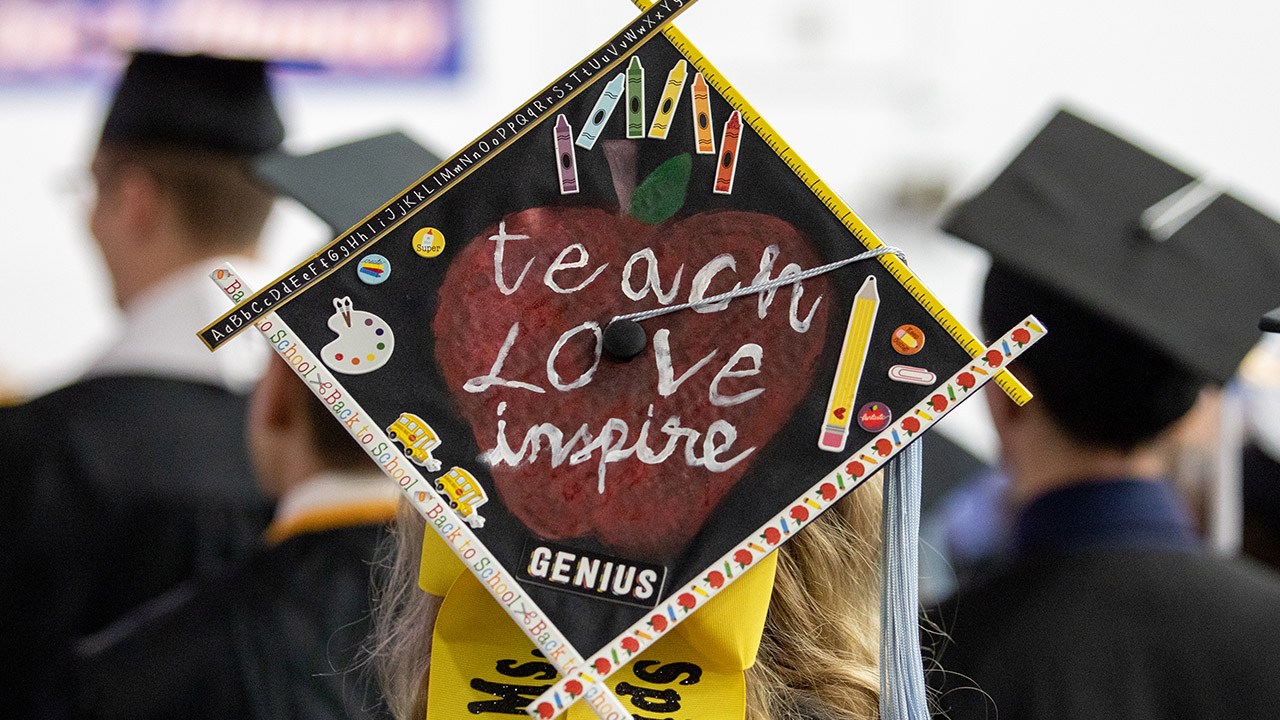
When the University of Wisconsin-Platteville’s School of Education was presented with the opportunity to re-envision its core framework, Dr. Jennifer Collins, director, said they started with a question: “whom are the people and where are the places we serve?” The answer, she said, was overwhelmingly rural communities. Building on the strong legacy of being the first teacher preparation institute in the state, the School of Education began looking toward the future with a focus on place-based education and building a teaching workforce responsive to the needs of their local, rural communities. School of Education faculty recently took another step towards this, engaging in a place-based education training with Teton Science Schools.
The opportunity to reframe its pedagogy came about, Collins said, when the State of Wisconsin announced a change to its licensing structure and introduced a new grade band covering 4k through ninth grade. In response, the School of Education is developing a new elementary-middle major.
“It became a great opportunity to re-envision who the School of Education wants to be,” said Collins. “Even though we might have students who want to end up in an urban or suburban area, our place – and where we’ll do all of our practice for the most part – is a rural place.”
Collins was referred to Teton Science by the director of the Rural Schools Collaborative to assist in training the School of Education faculty and instructors on the concept of place-based education, which is a foundational component of the school’s renewed focus on rural communities. In August, all of the School of Education faculty and instructional staff, as well as several faculty from the biology and geography departments, attended the first all-day training workshop. Follow-up sessions will take place throughout the year.
“The idea behind the training is that we want faculty to have a common language that we use around this concept so that we can better share our message not only to our students, but to the schools and community at large,” said Collins.
The concept of place-based education is a focus on using students’ own communities – including the history, culture, environment and more – as the primary resource for learning. Grounding students’ education in the local community’s context, can create a more meaningful experience for the students as well as benefit the community, explained Collins.
“Place-based education is so much more engaging for students,” she said. “It is solving real-world problems while building meaningful relationships in the community. It benefits communities and schools, and in smaller places in rural America, those two are inextricably linked.”
Collins added that place-based education can also address issues of equity in rural communities.
“It allows students to talk about the voices that are currently in those communities and also explore the voices that haven’t been heard in those communities,” said Collins. “When our students go out to a community where they are participating in pre-service teaching, they can explore the community and its cultural landscape to see whose stories are being told and whose are being left out of the conversation. This timely discussion surrounding equity and anti-racism starts in a classroom. The classroom is a really powerful piece of narrative storytelling and critical thinking about how we engage in the world around us.”
Collins said that in researching these ideas to create the framework for the School of Education’s rural community focus, she found that there were few examples elsewhere that had a similar concept.
“I think sometimes rural communities tend to get forgotten about in broader discussions,” said Collins. “We really could become leaders in this area – nationally and internationally. Dr. Lindsay Hollingsworth [associate professor in the School of Education] and I were just invited to be guest editors on an Australian journal special issue on rural education. We can share our story from little Southwest Wisconsin, and we have something to say in the bigger conversation. That is really powerful and something we can be really proud of. It ties back to our ‘teaching started here legacy’ – we were the leaders and founders of teacher education in the state of Wisconsin. I really want to bring us back to the forefront in that area.”
Collins said she also hopes this unique focus will help UW-Platteville School of Education graduates stand out as they enter the workforce. UW-Platteville began as the state’s first normal school in 1866 and has continued to be a leader in innovative educational ideas.
“I want students to walk out of our program and have superintendents start to say, ‘I can tell that one is a UW-Platteville graduate because of this,’” she said.